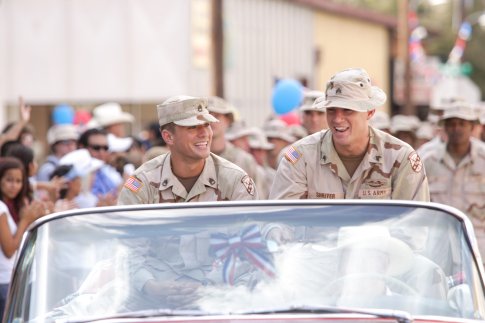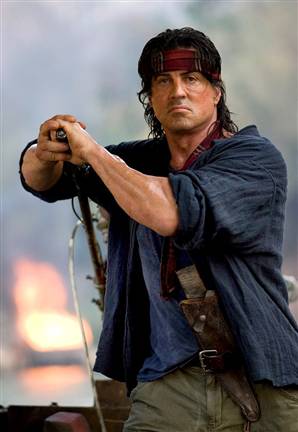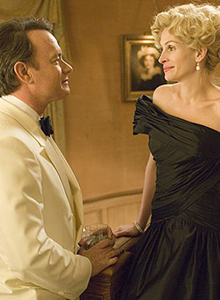Interview: Director Ed Zwick of ‘Defiance’
Posted on January 14, 2009 at 4:00 pm
Edward Zwick, the director of the new Holocaust movie “Defiance,” is well-known for both historical dramas (“Glory”) and intimate personal stories (the television series “Thirtysomething”) – and for finding the small moments in big stories and the big emotions in small ones. This is the ideal sensibility for the new Holocaust drama “Defiance,” the true story of The Bielski Brothers, who hid and protected 1200 Jews from the Nazis and the Russians in the Belarussian forest.
I spoke to him in Washington, D.C., where we quickly discovered that we graduated from different campuses of the same high school in the same year and have a friend in common and that lead off a lively exchange about the movie’s themes and what went into getting it made.
What are some of the movies that influenced and inspired you when you were still in school?
“The Guns of Navarone and “Lawrence of Arabia when I was young, but I was a real addict of “The Late Show” and watched everything, especially anything from John Huston, Howard Hawks, and George Stevens.
Is there one theme or thruline that is a part of all the projects that interest you?
You’re the critic — that’s for you to pick out. If I try to think objectively about myself and my work, I would say I want to be intuitive and distinctive. You can’t help but reveal your bias, and you can’t but invest personally in any story that you tell. I like to reveal people with some of the niceties of social behavior stripped away and the moral, ethical, and political issues are revealed.
One of the questions that drew me to this project was the question of how Jewish culture has survived. The Passover Seder is about telling the story of the exodus. Stories are one of the means by which a culture preserves its identity. There is a perverse irony in commemoration of the dead in the Holocaust with little attention to the survivors and the resistance, especially the Jewish resistance. Its immensity can’t be underestimated and it is a story that needs to be told. We all know these iconic images of Jews in the Holocaust and those are important but we have come to accept them as the only images and that needs revision.
It came to our attention through Tuvia’s obituary. We found our way to the family and they were very generous with anecdotes, pictures, videotape, and Tuvia’s unpublished autobiography. The comment at the end of the film underscores the rising to the occasion aspect of what they did. They took off the mantle of responsibility and the burden of doing certain things they were not proud to revisit. They had a hard-won normalcy. Having done things that were very extreme and had to do with survival, they preferred that it was not better known.
You had three actors, two British and an American, playing brothers. How did you create that sense of connection and history between them?
I did some of it and they did some of it. They created this lovely kind of rough-housing sibling regressive behavior that they developed on the set and it was an approximation of their boyhood. Liev Schreiber and Daniel Craig got into this very competitive sibling thing that was important for the relationship of their characters. We also had an extraordinary dialect coach, because we wanted a consistent sound, that commonality.
And we worked with Jenny Beavan, one of the goddesses of the costume design field. Her gift was to find the real pieces, to find in each character that silhouette and watch that silhouette change, to subtly watch characters become more assimilated, losing and picking up pieces. At one point Liev steals the coat from the milkman, and then we see Daniel’s wearing the coat and then he gives it to Alexa and then we see it covering them in bed. There were no new things but everything had multiple uses and that, too, helps to tell the story.
Tell me about working with James Bond – Daniel Craig has been working in a very different genre.
He is a character actor, real protean, and he is very determined not to be only one thing. He reminds me of Anthony Hopkins who is also a working class classically trained British actor and there’s nothing like that. He is very internal. And he wanted Liev’s character to seem more dominant; he is very generous that way.
What were some of the issues presented in telling this story?
It is a complex subject, but it is important to understand the difference between passivity and powerlessness. These people were stateless. They had no access to weapons. The police were hostile. But they had this urban natural setting. Everywhere there was a forest, a part of the natural world, there were Jews who hid in it. There was God in the forest – denoted, in the juxtaposition of the natural world, the forest as a place of sanctuary. It embraced and sheltered them.
It was important for me not to describe this group as a monolith, all of them like each other and acting as one force. That objectification leads to prejudice and genocide. There were many divides: religious and secular, class, sexuality, aggression — all ways to individuate it. I think of the W.H. Auden poem “September 1, 1939,” when he says “I and the public know/What all schoolchildren learn,/Those to whom evil is done/Do evil in return.” In the interest of survival they may cross lines even into the emulation of their tormentor. For me, that made it more heroic because it made it more believable.
It also happened to be true.

 A young soldier who has come home from Iraq is forced to rethink his ideas about heroism and patriotism when he is “stop-lossed” — informed that instead of leaving the Army he has been involuntarily assigned to another tour of duty. Brandon (Ryan Phillippe) and Steve (Channing Tatum), his best friend since high school, were greeted with an old-fashioned hero’s welcome right out of a Norman Rockwell painting, with a parade and a warm handshake from their Senator, who says his door will always be open to real-life American heroes. They speak proudly about “killing ’em in Iraq so we won’t have to kill ’em in Texas.” But when Brandon finds out that the government has the right to send him back, he goes AWOL and leaves for Washington with Steve’s estranged fiancée (Abbie Cornish), hoping the Senator will find a way for him to stay home.
A young soldier who has come home from Iraq is forced to rethink his ideas about heroism and patriotism when he is “stop-lossed” — informed that instead of leaving the Army he has been involuntarily assigned to another tour of duty. Brandon (Ryan Phillippe) and Steve (Channing Tatum), his best friend since high school, were greeted with an old-fashioned hero’s welcome right out of a Norman Rockwell painting, with a parade and a warm handshake from their Senator, who says his door will always be open to real-life American heroes. They speak proudly about “killing ’em in Iraq so we won’t have to kill ’em in Texas.” But when Brandon finds out that the government has the right to send him back, he goes AWOL and leaves for Washington with Steve’s estranged fiancée (Abbie Cornish), hoping the Senator will find a way for him to stay home. Same “stick it to the man” story. Same stoic, emotionally damaged but still a fighting machine (mean, yes; lean, not so much) who can take on a hundred guys with guns because he is so well trained and so pure of heart.
Same “stick it to the man” story. Same stoic, emotionally damaged but still a fighting machine (mean, yes; lean, not so much) who can take on a hundred guys with guns because he is so well trained and so pure of heart. It is not easy to take a wealthy socialite, a powerful Congressman, and a CIA agent, have them played by three Oscar-winners, two who are genuine box office gold, and make them look like the underdogs, but in this “extraordinary story of how the wildest man in Congress and a rogue CIA agent changed the history of our times” (as put in the unusually accurate book subtitle), that is what they are.
It is not easy to take a wealthy socialite, a powerful Congressman, and a CIA agent, have them played by three Oscar-winners, two who are genuine box office gold, and make them look like the underdogs, but in this “extraordinary story of how the wildest man in Congress and a rogue CIA agent changed the history of our times” (as put in the unusually accurate book subtitle), that is what they are.